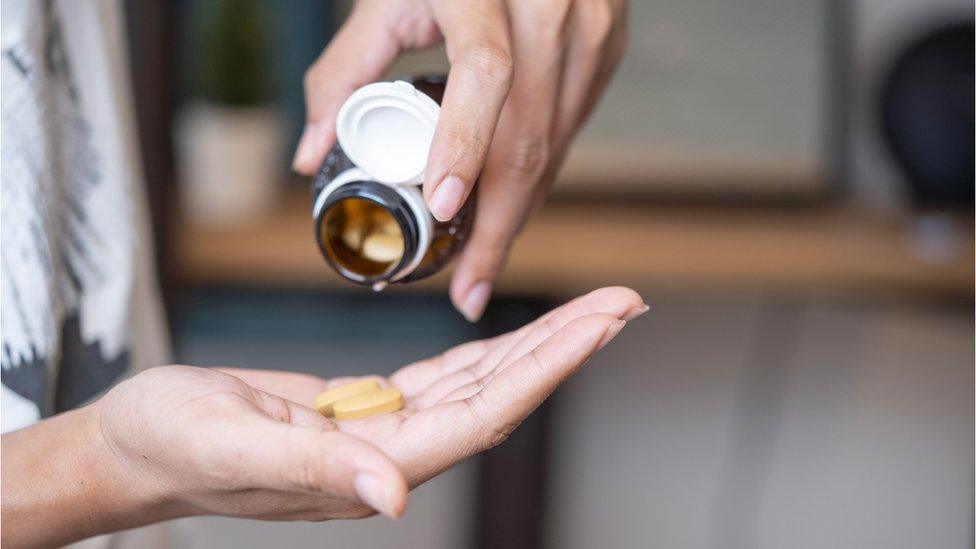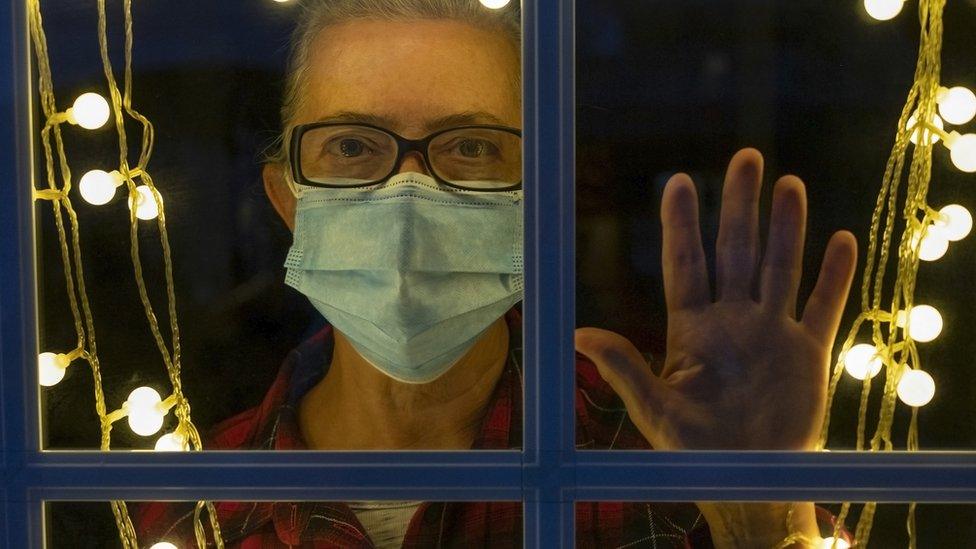Covid: Free Vitamin D pills for 2.5 million vulnerable in England
- Published

Vitamin D supplements help keep bones and muscles healthy, particularly during the winter
More than 2.5 million vulnerable people in England will be offered free Vitamin D supplements this winter.
The vitamin, which helps to keep bones, teeth and muscles healthy, will be delivered to people who are clinically extremely vulnerable, and care homes.
Skin makes Vitamin D when exposed to sunlight - but the elderly and those with dark skin need topping up.
The coronavirus pandemic means many more people than normal have spent time indoors.
The groups most at risk are residents in care homes, and people with serious health conditions which mean they have spent extended periods shielding from the virus - a total of 2.7 million people.
Health officials say that even in a normal winter, everyone should take 10 micrograms of Vitamin D a day between October and March - and it's particularly important this year because of coronavirus.
Scottish, external and Welsh, external governments, and Northern Ireland's Public Health Agency, external issued similar advice during lockdown.
But there is limited evidence that vitamin D protects against or treats Covid-19, although health officials have been asked to go back over the existing research.

Millions of people have spent extended periods indoors this year because of Covid-19
All care homes in England will receive enough supplements for their residents, the government says.
People on the clinically extremely vulnerable list, external will get a letter inviting them to opt in for a supply of Vitamin D tablets to be delivered to their homes.
Deliveries will start in January. They'll provide four months' worth of free supplements.
"Vitamin D is important for our bone and muscle health," says Dr Alison Tedstone, chief nutritionist at Public Health England.
"We advise that everyone, particularly the elderly, those who don't get outside and those with dark skin, take a Vitamin D supplement containing 10 micrograms (400IU) every day.
"This year, the advice is more important than ever with more people spending more time inside, which is why the government will be helping the clinically extremely vulnerable to get Vitamin D."
GP Sarah Jarvis told BBC Breakfast that those who cover up for religious reasons, pale-skinned people and those who are generally unwell are also at higher risk.
"All of those are either going to get less vitamin D or in the case of people of BAME (Black, Asian and minority ethnic) origin may make less of it," she said.
People who are able to buy a Vitamin D supplement and start taking them now, ahead of a free delivery, are advised to do so.